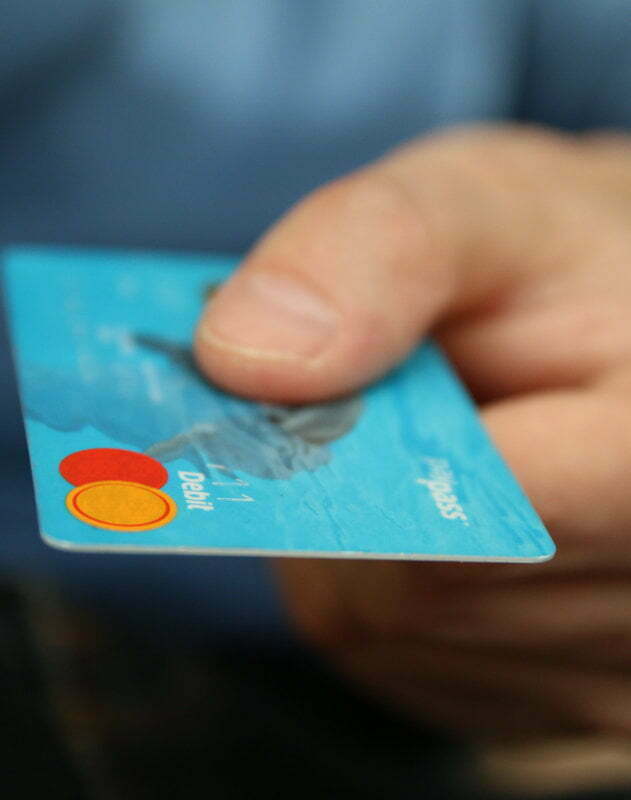During the ups and downs of financial cycles, presents financial problems caused by the recession that impact various aspects of our lives.
As economies navigate through uncertain waters, the ripples of financial strain often reach our doorsteps. As we find ourselves in the grips of a recession, the financial currents shift, impacting personal finances on a profound level. Jobs become uncertain, markets fluctuate, and our financial foundations’ stability is tested.
This blog aims to shed light on the challenges of the recession and provides practical insights into navigating the stormy seas of financial uncertainty.
Here are six tips for handling your economic crisis due to the recession.
1) Create an emergency fund
The emergency fund is a resilient shield against unforeseen costs, a monetary safety net designed to catch you when unexpected expenses threaten your financial stability.
Why Do You Need One?
Imagine your car breaks down, or worse, you find yourself facing unexpected unemployment. In these moments of financial problems caused by the recession, having a well-padded emergency fund is akin to having a lifeline. Immediate access to cash allows you to navigate through the crisis without the added burden of scrambling to find funds.
How Much Do You Need?
The amount for emergency savings depends on various factors, such as lifestyle, monthly expenses and financial obligations. Financial professionals generally recommend maintaining a safety cushion of savings to cover three months’ living expenses. Note that the specific amount may differ based on situations. This safety buffer acts as a financial parachute, ready to deploy in emergencies, offering a robust defence against the unexpected twists life may throw your way. It covers immediate needs and provides a buffer for periods when income may be disrupted, ensuring you have the energy to weather the storm.
2) Tackle your debt
Create a debt repayment plan. This includes creating an annual budget and ensuring you can make payments on time every month by paying off your balances as soon as possible.
Look for credit counselling services if necessary (and get them free). They might assist in navigating this period concerning finances, ensuring that you maintain control and avoid any potential long-term repercussions.

3) Save more.
Ways of saving money are about finding ways that don’t cost much, like:
- Shopping around for cheaper alternatives instead of buying something new every time;
- Buying things in bulk;
- Using coupons;
- Seeing if discounts are available at stores/restaurants/etc.;
- Make sure to check the prices of things before purchasing. This way, when they are discounted (or even earlier), they might not appear as pricey anymore.
4) Look for a new job.
When economic tides shift and employment uncertainty looms, seeking a new job becomes a beacon of hope. Though influenced by the recession, the job market remains dynamic, with opportunities waiting for those willing to navigate its currents.
The first step is actively exploring the job market, leveraging online platforms, networking events, and industry-specific resources. Keep your resume updated, tailor your applications, and be persistent in your pursuit. If your current employment situation is strained, consider initiating conversations with your employer about options like a pay cut or unpaid leave. While these may not always be viable, open communication may lead to more flexible arrangements until you secure a new position.
Networking proves to be a valuable asset in the job-seeking journey, especially during challenging economic climates. Reach out to friends and family members who may have connections in your industry. Their insights and recommendations can provide valuable leads and open doors to opportunities that may not be publicly advertised. Attend industry events, virtual meet-ups, and professional gatherings to expand your network. Often, the most fruitful job opportunities arise from personal connections and recommendations.
5) Cut back on unnecessary expenses.
With the economic downturn, you might feel the pinch of recession in your household budget. It’s difficult to know what costs or expenses to cut back on. Besides the essentials like food and utilities, consider the many factors that collectively influence.
Here are some examples:
Do you buy coffee at Starbucks every day? If you do, how much does that cost you? If you’re spending £3.50 on coffee daily, that’s £105 per month or £1,277.50 per year.
Going out to restaurants is also a significant expense. If you’re going out once a week and spending an average of £80 per visit, that’s another £4,320 per year.
How much do you spend on entertainment? And remember, the movies can be a chunk of this expense! If you go once a month and pay around £7.50 per visit, that’s another £405 per year right there. When you combine all these expenses, you’ll realise how quickly they can accumulate during challenging times.
But there are tons more ways to cut back! Think about your collections like comic books and other hobbies.

6) Look for ways to earn extra money to avoid financial problems caused by the recession.
In the interim period, before securing a new job, or even alongside your regular employment, consider identifying opportunities for supplemental income or side hustles. Leverage your existing skills and explore new avenues for earning that align with your expertise. Whether it’s freelancing, consulting, or engaging in a passion project that can generate income, a side hustle can serve as a financial buffer while you navigate the job market. Balancing these commitments with your financial goals is essential—optimise your time and energy to ensure that your efforts contribute to immediate financial relief and long-term financial stability.
There are several opportunities available to earn extra money.
- Start a business
- Take on a part-time job.
- Work overtime
- Rent out your home, car or other belongings.
- Sell unwanted items or offer services. If you don’t have enough money but want extra cash flow, consider selling some of your possessions or refinancing debt payments if they’re not too high yet (and make sure they’re legally binding).
- Swap goods or services with other people.
As you explore these additional income streams, remember that resilience and adaptability are your greatest assets.
Get Prepared For The Next Recession
Whether you’re gearing up for an impending recession or safeguarding against debt during economic prosperity, strategic actions can pave the way for a resilient financial future.
As a first line of defence, pay off debts before the next recession hits. Focusing on paying these debts now prevents the accumulation of excessive interest payments in the event of a job loss or financial strain during a recession.
Creating a budget that sustains for at least six months without additional income is paramount. Reduce spending, save consistently, and ensure a financial safety net to withstand the impact of a downturn.
Anticipating financial challenges caused by a recession allows you to take preemptive measures to secure your financial foundation.
Conclusion
Each tip and strategy discussed in this blog is a device in your arsenal, waiting to be wielded with purpose. Whether building up an emergency fund, searching for job opportunities, or exploring ways to earn income, the ability to strengthen your financial stability lies within your control.
Financial resilience is characterised by the capacity to adapt, acquire knowledge and persist despite difficulties.
Financial stability is a constantly changing and evolving process that demands a resilient mindset.
Images Used
Photo by Pixabay: https://www.pexels.com/photo/shopping-business-money-pay-50987/
Photo by Nataliya Vaitkevich: https://www.pexels.com/photo/woman-coffee-laptop-notebook-8927507/
Photo by Markus Winkler: https://www.pexels.com/photo/green-and-white-typewriter-on-brown-wooden-table-12410062/





0 Comments